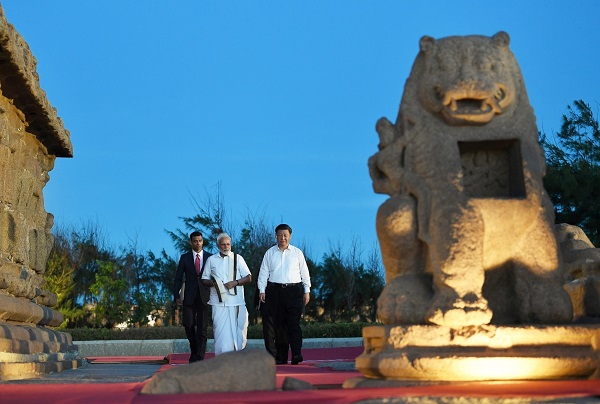
Beijing, The second informal summit between Chinese President Xi Jingping and Indian Prime Minister Narendra Modi, which began in India on Friday, will “set the tone and direction for the next stage of China-India ties,” an influential Chinese English daily said.
In its editorial, the Global Times termed the second informal summit, which is being held in the historical town of Mahabalipuram in India’s Tamil Nadu, as one of the most eagerly-awaited events of the year.
“In April 2018, the first informal summit between Xi and Modi in Wuhan pulled bilateral relations back on track from the shadow of the Doklam standoff. Exchanges and cooperation in various fields have been comprehensively promoted. This time, the meeting in Chennai will set the tone and direction for the next stage of China-India ties while providing stability and positive energy for the current world full of uncertainties.
“The Mahabalipuram summit will set the direction for taking China-India ties to the next level, “while providing stability and positive energy for the current world full of uncertainties”, the editorial said.
It said that people of both India and China view the informal summit constructively, but still some sections of foreign media focus on the differences between the two countries, adding that this is not “unexpected”.
“Some people in the West have been constantly driving a wedge between Beijing and New Delhi, hoping to see frictions or even clashes break out.
“People with even a slight political sense know why the US and the West do not want China and India to be close to each other, and why they hope to see a fight between the Chinese dragon and Indian elephant, because the two emerging powers could consume their energies while the West gains strategic benefits.
“Although some Indian media tend to make impulsive statements from time to time, Indian policymakers have maintained strategic rationality and geopolitical sense. Both countries have gradually formed an increasingly stronger ability to control their problems,” the editorial said.
Terming Sino-India ties as “complicated”, it cited their border disputes, historical grudges and geopolitical concerns for this, and warned that any of these can be provoked by nationalist sentiments and foreign meddling to led to a fearsome conflict which can cause bitterness.
Summing up, it said that Chinese society has full “goodwill” for India and wishes for its peaceful development, and as both countries are neighbours, they can, instead of using this proximity as a cause of conflict, make it the guiding force for their development.
“We believe, guided by leaders from the two sides, ties between China and India would become a significant factor in defining international relations in the future,” it said.









